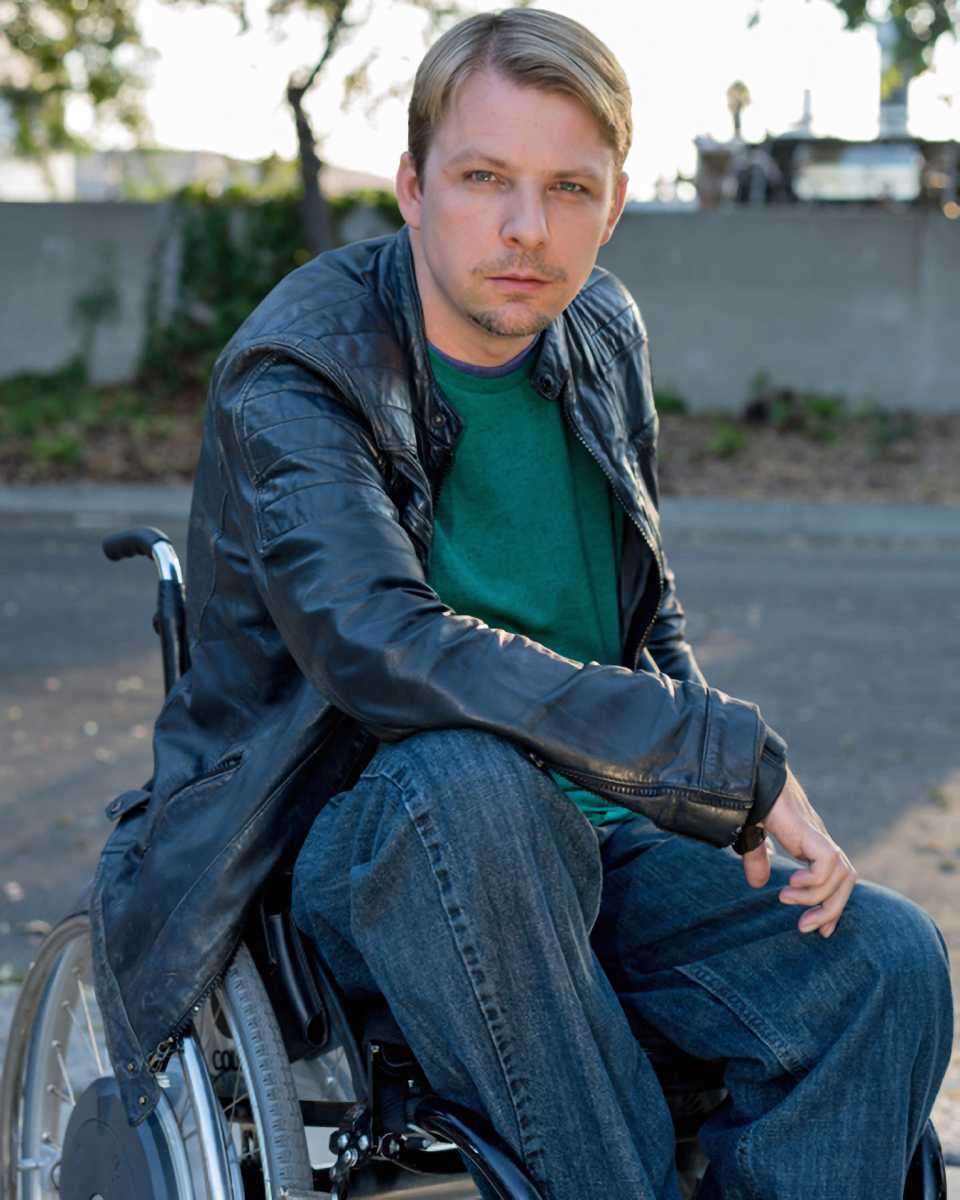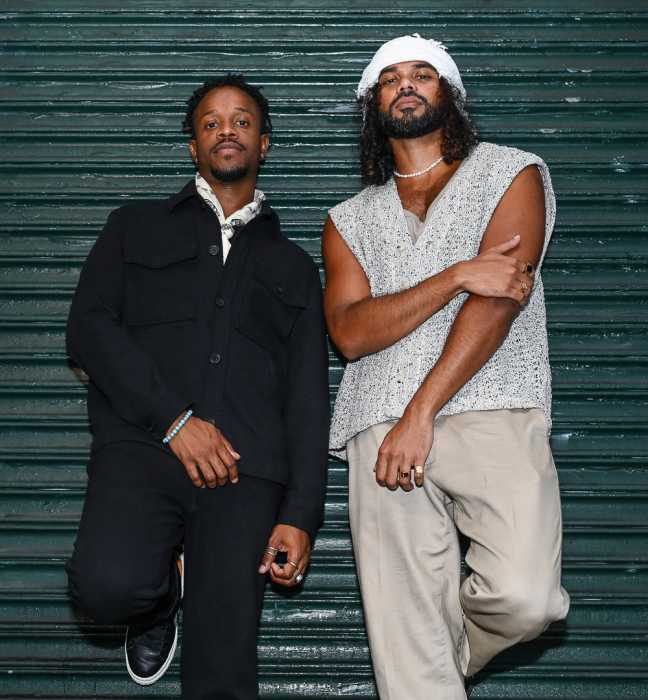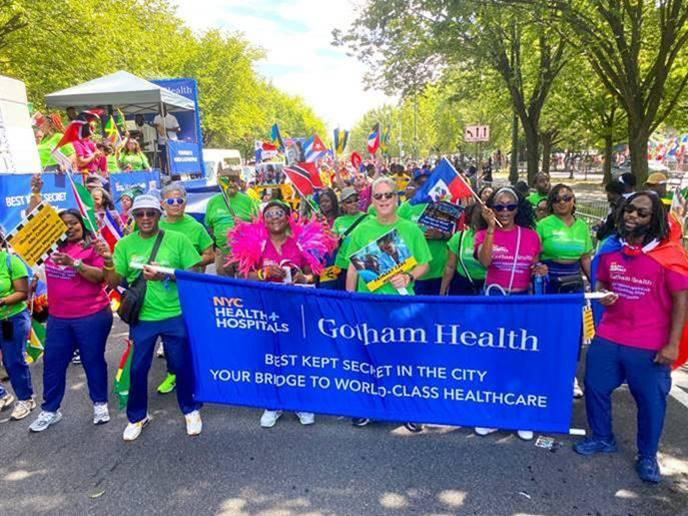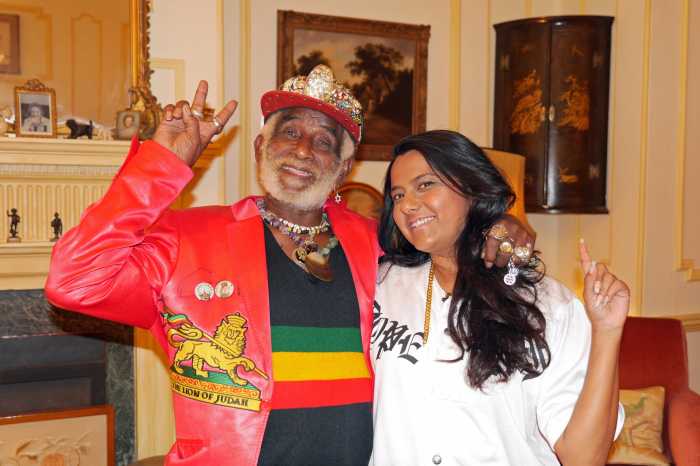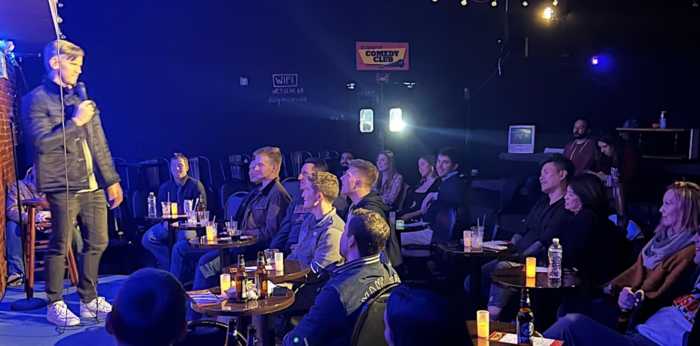The independent film “Daruma,” starring disabled lead characters Tobias Forrest and John W. Larson, will be in select theaters and on streaming platforms on Nov. 15. The trailer will be screened virtually on Nov. 8.
According to the film’s website, it “tells a story that everyone can relate to, one about friendship, fatherhood, and found family.”
According to the film’s website, work on the project began for writer/producer Kelli McNeil-Yellen in 2007 and for her husband, director/cinematographer Alexander Yellen, in 2017.
“Both Toby and John were cast in their roles in 2018 after a nationwide casting search led them to the talented actors who breathe life into these seminal characters. After knocking on a countless number of doors to try and get the project made, the filmmaking team realized they’d have to forge a path to do it themselves in order to tell the story authentically,” the website stated.
Tobias Forrest is a C5 quadriplegic and wheelchair user, due to a spinal cord injury that happened in 1998. “Because I have limited mobility, it requires me to hire a daily assistant for many things; however, once in my wheelchair, I am primarily self-reliant.”
When he is out in public, working on set, or traveling, Forrest may require help from a complete stranger, and he has been fortunate in his experiences. “Due to this support, I’ve had wonderful opportunities like ‘Daruma,’ that help me share my passion to create,” Forrest said.
John W. Larson has been a double-hand amputee for 37 years. “Rather than focusing on limitations, I’ve always focused on excelling at what I can do. In my acting career, one of the biggest challenges is getting producers, directors, and casting agents to see me as an award-winning actor rather than solely as an actor with no hands,” Larson stated.
Forrest was a singer in college, but he never considered acting. A few years after his injury, while getting a master’s in psychology, he was assigned to portray someone with Alzheimer’s.
He performed a monologue that he wrote, and his class asked me why he wasn’t an actor.
“After I graduated, there was an opportunity to do research at UCLA, so I moved to California. My good friend and fellow quadriplegic, Danny Murphy (frequently cast in films by the Farrelly Brothers but who tragically passed away in 2014), was already a great actor and told me about an audition for a Christopher Reeve Scholarship,” Forrest explained.
Although he had no experience, he still had his monologue, so he decided to try. He won the first-ever Christopher Reeve Best Acting Award at the Media Access Awards, which Marlee Matlin presented.
Norman Lear founded the Media Access Awards, and Toby is the only actor to have ever received that honor in Mr. Lear’s lifetime.
Larson was a professional actor before his accident. While still in the hospital, he realized there must be acting opportunities for a trained actor with no hands.
“I had no idea this would lead to 37 years of advocating for greater disability representation in film and television. When I began, characters with disabilities made up less than 1% of roles. Despite 25% of the population having some form of disability, that figure has only increased to about 2% today. This leaves a significant portion of the audience underrepresented in the entertainment they consume,” Larson added.
When Kelli and Alex Yellen called, Forrest was surprised to learn that I was originally just helping my talented friend John Lawson as the reader for his audition.
“He then convinced me to audition for the other character and although very hesitant, I eventually agreed. There was no expectation for me because I had no preparation, and the character was written for a paraplegic, so I assumed my chances were very low. However, when Kelli and Alex brought me in, and I had the opportunity to do a reading with John, I knew that it was something special,” Forrest added.
When they told him that he had booked the role, he was beyond excited but also concerned that my disability might make things a bit more complicated.
After the initial audition, Larson was thrilled to receive a callback for the film. It was especially meaningful to do the callback with his longtime friend, Tobias Forrest.
“We performed two scenes: one where we were at odds and another where we had become close friends. I believe our real-life friendship shone through, helping the producer and director in their decision. Getting the call that I was cast in such a groundbreaking film for actors with disabilities was both exciting and deeply meaningful,” Larson continued.
Being an independently produced film with a limited budget, it was very meaningful to Larson that the producers went out of their way to ensure accessibility and safety for all cast and crew members.
Forrest emphasized that even with the best preparation for a film, there are always obstacles. His years in a wheelchair on film sets have given him a good perspective on how to overcome most barriers.
“We had an experienced crew who were always there to help and producers that planned ahead. I was assisted with countless transfers and even got to do my own stunts with our incredible team,” he continued.
“Before production, my biggest concern was being able to physically perform what the character required. Alex and Kelli helped me realize that they were not focused on what the character could do but on what the character could feel. They said, ‘This isn’t a movie about the things people can’t do, but the things they can.'”
Thanks to the director, Alex, Forrest was able to play a character who is far more able-bodied than myself. Additionally, Forrest believes this film will highlight the importance of inclusion and authenticity in the entertainment industry.
He also hopes this will empower other creatives and performers with disabilities to tell their stories and pursue their passion since disabled people have often been misrepresented and missed the opportunity to represent themselves in films.
“On a limited budget and schedule, the producers of Daruma (married couple Kelli McNeil-Yellen and Alexander Yellen, also the writer and the director of the film, respectively) proved you don’t have to spend millions of dollars to digitally disable actors to tell a compelling story. Maybe some of the major production companies will hear about this film and decide to do the same,” Forrest continued.
In expressing a similar sentiment, Larson hopes that the film would resonate with others in the disability community by portraying characters with disabilities in a way that is authentic, multidimensional, and free from common stereotypes.
“Instead of focusing on overcoming a disability or using it as a defining characteristic, I’d want the film to show that people with disabilities are full human beings with complex lives, relationships, and aspirations — just like anyone else,” Larson added.
According to Forrest, “It’s important that not only the community but also major industries like entertainment and advertising realize that people with disabilities account for an extremely large amount of income for them. Because over 20% of the population has a disability, there is incredible power in what we choose to support and purchase.”
The Inevitable Foundation (IF) released a report in July that provides more information on this. It can be found here: https://www.inevitable.foundation/greenlightreport.
However, he said this is just a side benefit because the message he hopes people get from watching “Daruma” is far more personal. “Hopefully, they don’t see a movie about two guys with disabilities; instead, they connect with a story about two guys struggling to become good fathers.”
Larson would want viewers to see themselves represented in a way that reflects the reality of their experiences, whether or not disability is a significant theme in the film.
“This would empower others by affirming that they don’t have to fit into limited narratives of triumph or villainy, but that their stories — like all stories — are varied and valid,” he added. “Ideally, it would challenge assumptions about what disabled people can achieve, showing that they belong in every aspect of life, including in roles that aren’t specifically about disability. That representation could inspire more self-acceptance, confidence, and a stronger sense of belonging, both in film and everyday life.”
Those interested in watching the trailer on November 8 can sign up for the watch party here: https://docs.google.com/forms/d/e/1FAIpQLSdUqHUbGhEWmkmN7nSLeoSIH_t9-LSJnaFCeQaQIyI6Mgnubg/viewform.


